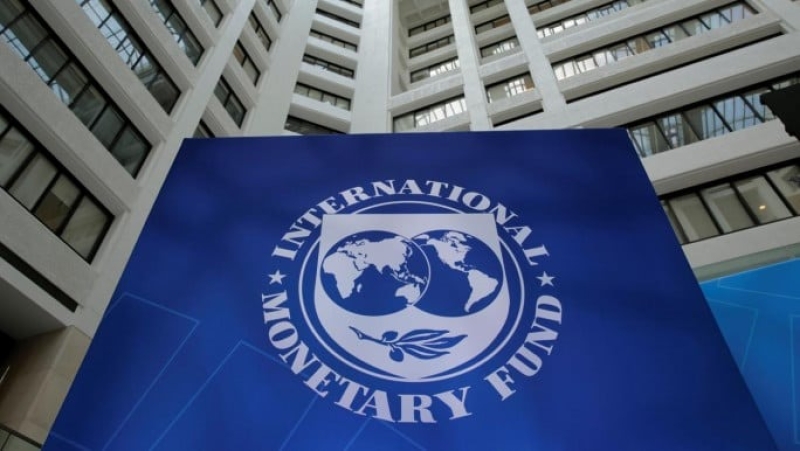- অতিথি পাখির বিচরণ আর দুষ্টুমিতে নান্দনিক হয়ে উঠেছে কুয়াকাটার চর বিজয় |
- Remittance inflow exceeds $632 million in first six days of Dec |
- 18 migrants die as inflatable boat sinks south of Greek island of Crete |
- TIB for polls manifesto vows to curb misuse of powers and religion |
- Khaleda now not fit for travelling: Medical Board |
IMF Flags Risks to Bangladesh Economy Amid Inflation, Weak Revenue

International Monetary Fund.
Bangladesh has made progress in maintaining macroeconomic stability and advancing reforms, but the economy continues to face significant macro-financial challenges due to weak tax revenue, vulnerabilities in the financial sector, and elevated inflation, the International Monetary Fund (IMF) said on 13 November.
“Bold policies to address fiscal and financial sector challenges are critical to restore strong and inclusive growth while safeguarding fiscal sustainability and macro-financial stability,” said Chris Papageorgiou, who led the IMF’s latest 13-day review mission in Bangladesh.
The IMF warned that downside risks remain substantial, particularly if policy responses are delayed or insufficient. The observations came during an online press briefing following the mission, which assessed the fifth review of Bangladesh’s Extended Credit Facility (ECF), Extended Fund Facility (EFF), and Resilience and Sustainability Facility (RSF).
Economic outlook and reforms
Bangladesh’s GDP growth slowed to 3.7% in FY25 from 4.2% in FY24, reflecting production delays during recent unrest, a tighter policy mix, and heightened uncertainty. Headline inflation fell from double-digit levels earlier in the year but remained elevated at 8.2% in October.
“Authorities have made notable progress in maintaining macroeconomic stability. Foreign exchange reserves have begun to rebuild following the May exchange rate reform,” the IMF said. However, the economy still faces challenges from weak tax revenue and undercapitalised banks.
Addressing these challenges will require comprehensive tax reforms to create a simpler and fairer system and measures to strengthen the financial sector. With consistent implementation, GDP growth is projected to accelerate to nearly 5% in FY26 and FY27, while inflation is expected to remain high at 8.8% in FY26 before easing to 5.5% in FY27.
Financial sector and fiscal measures
The IMF highlighted the need for a credible, government-wide strategy to address weak banks, including assessing undercapitalisation, estimating fiscal support requirements, and implementing robust restructuring plans with identified funding. Asset Quality Reviews should cover all systemically important and state-owned banks.
“Continued efforts are needed to improve banks’ governance, balance sheet transparency, and frameworks for recovering non-performing loans,” the IMF said. Monetary policy should remain tight to bring inflation back to the 5–6% target range, and authorities should fully implement the new exchange rate regime.
Improving public financial management, containing subsidies, and reallocating resources toward social safety nets and infrastructure are also crucial. Structural reforms should continue to strengthen central bank governance, anti-corruption measures, anti-money laundering frameworks, job creation, and export diversification.
Climate and resilience focus
Bangladesh has made progress under the RSF in climate resilience and financial sector risk management, but the IMF urged rapid scaling up of climate finance to close funding gaps.
“The Fund remains committed to supporting Bangladesh in achieving sustained macroeconomic stability and inclusive growth,” the statement said.
During its mission, the IMF team also met with government departments, Bangladesh Bank officials, and leaders of major political parties to review revenue shortfalls, fiscal and borrowing plans, and broader reform agendas.

